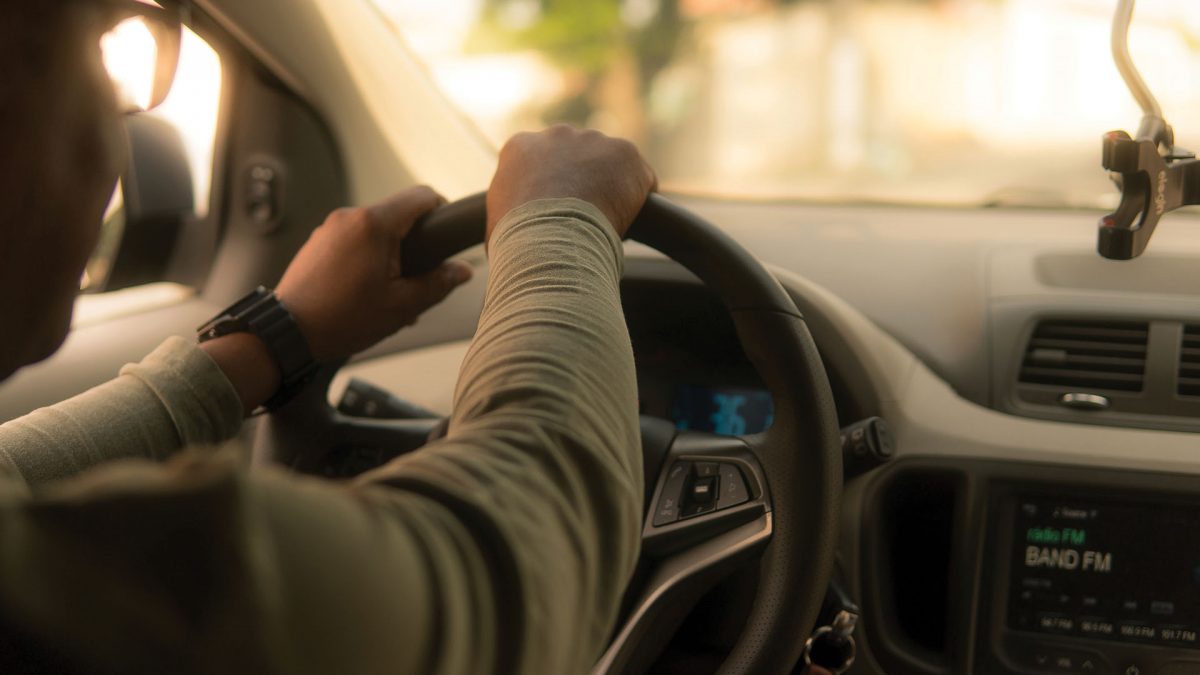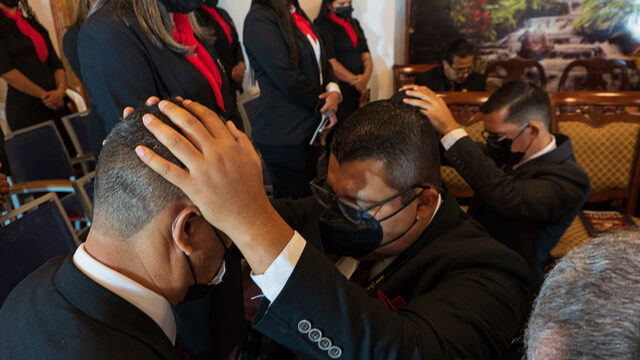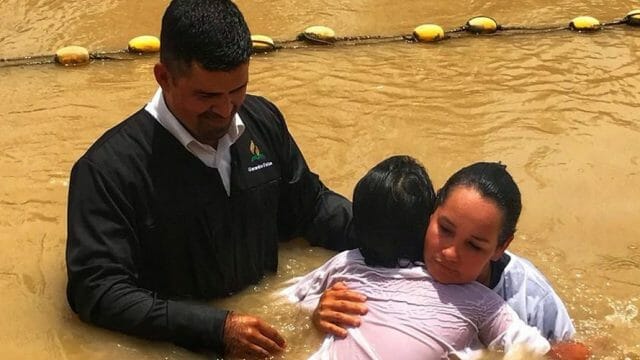Giving up may mean giving up God’s best for your life.

I gripped the steering wheel and gritted my teeth. If I can just drive a little farther than yesterday, eventually I’ll be able to drive anywhere I want to go, I told myself.
No, this wasn’t an unseasoned driver’s education student trying to master the art of driving. Sadly, this was me—a thirtysomething adult battling an anxiety disorder known as agoraphobia. I was trying to beat down agoraphobia through “systematic desensitization,” or “exposure therapy.” The idea was to face my fear, which in my case involved driving too far out of my “safety zone.” Especially problematic were freeways with few exits. After all, my first full-blown panic attack had happened on Chicago’s Dan Ryan Expressway in the United States. My brain had tricked me into thinking that if I avoided traveling under certain conditions, including driving alone on a freeway, I’d be “OK.” Now, after years of avoidance that had left me sometimes unable to drive alone even a few blocks away from home, I was desperately trying to unlearn my avoidance behaviors.
Search agoraphobia on the Internet, and you’ll be informed that it’s a “fear of open spaces” or some such thing. That’s not a good definition. For most people agoraphobia means avoiding a situation that triggers a panic attack. Believe me, I know. I struggled with agoraphobia, along with obsessive-compulsive disorder and panic disorder, for decades. If you’ve never experienced a panic attack, you can be thankful indeed. The experience of sweating, shortness of breath, pounding heart, and other physical manifestations makes most victims feel as if they’re dying. They’re not, but a brain convinced against its will is of the same opinion still. Even though panic attacks aren’t dangerous, they’re frightening beyond belief.
It all seemed logical at the time: simply face my fear and it would disappear, right? So I persevered, day after day, week after week— with little to show for my misery. Oh, I made some progress, a few miles of hard-earned, panic-free driving. But as I thought back to those days of youthful hitchhiking, solo road trips, and airline flights, suddenly the “victory” of driving eight miles away from home seemed insignificant. I was trying; I really was. And I was praying too. In fact, I became a pastor, hiding my shame-filled dysfunction from the congregation as best I could. To say the least, visiting church members was not my strong suit. Eventually my mental health challenge was a big reason I chose to leave pastoral ministry. I tucked my Master of Divinity degree into a box and went back into retail sales. Strangely, I never lost hope; I never gave up my dream of being freed from the shackles of anxiety disorders.
It turns out that God shared my dream. My mental health challenges didn’t blindside Him. “Your eyes saw my unformed body; all the days ordained for me were written in your book before one of them came to be” (Ps. 139:16, NIV). My heavenly Father knew what I’d one day face. What I didn’t know then was how dramatically He’d come alongside me, empowering me in His time as I maintained my faith and trust in Him.
In less than a year after I left pastoral ministry, I accepted an editorial position at the Review and Herald Publishing Association. I’d confided in my interviewer (and eventual boss) about my situation, including my travel challenges. I’ll never forget her grace-filled response: “Randy, one thing I’ve learned through the years is that a person’s pain makes you much more sensitive to others’ struggles.” Then she smiled and added, “I don’t see a problem here.” Eventually I filled her position as a senior editor. I tried hard to pass along the tradition of understanding and grace.
Several years passed. I’d still made little progress with my ability to drive and travel, but hope was a constant companion. Oh, I flirted with giving up, but Someone wouldn’t let me. And it would be a sin of omission if I didn’t admit that desperation even made an occasional appearance. Oddly enough, it was during such a time when my breakthrough finally came along.
SOLUTION AHEAD
Until this time, I’d told myself I could desensitize or simply think my way out of the pit of anxiety disorders. The hard truth was that nothing had yet worked for me. So in desperation I called a psychiatrist. I should have done it much, much sooner. After carefully listening to my story, including my genetic history, Dr. Wagner spoke six words I’d longed to hear for more than 20 years: “I think I can help you.” His protocol involved medication—something I’d long resisted—and psychotherapy with a trained counselor.
Six months later I drove alone 65 miles from my home to Dulles International Airport. I then boarded a plane for Orlando, Florida. After a wonderful weekend in the Sunshine State, I flew back to Dulles and slipped behind the wheel of my car. On the way home I slowed down to savor the joy of driving once again. In His time God had used a compassionate psychiatrist to help solve my problem.
Here’s something to remember about perseverance: even though we may sometimes feel like giving up, we must never forget that “our heavenly Father has a thousand ways to provide for us of which we know nothing.”* There’s a place for exposure therapy and many other solutions to anxiety disorders. But if I hadn’t persevered despite my occasional discouragement, things might have turned out different—much different. With God in the picture, even in the darkest of times we can make these words of Scripture our own: “We are hard-pressed on every side, yet not crushed; we are perplexed, but not in despair; persecuted, but not forsaken; struck down, but not destroyed” (2 Cor. 4:8, 9). Do I wish God would have “fixed things” sooner? No, I don’t. I trust that His ways and timing are best.
Back when anxiety disorders were first gaining a foothold in my life, there was an American TV show called Then Came Bronson. Bronson was a motorcycle rider who traveled the country just for the experience. At the beginning of each episode he would pull up to a stoplight next to an exhausted commuter in a station wagon. Through the rolled-down driver’s-side window the man would look wistfully at the motorcycle and then at its rider. “Man, I wish I was you,” the driver would say to Bronson. Every week Bronson would look sympathetically at the man and reply, “Well, hang in there.” With that the light would change, and both men would go on their way.
“Hang in there” is yesteryear’s way of saying “persevere.” With God by your side, you will make it through.
*Ellen G. White, Our Father Cares (Hagerstown, Md.: Review and Herald Pub. Assn., 1992, 2013), p. 76.








